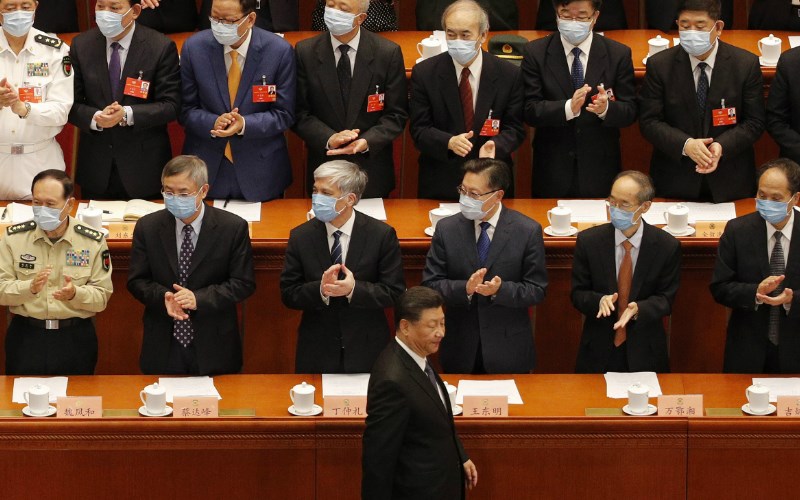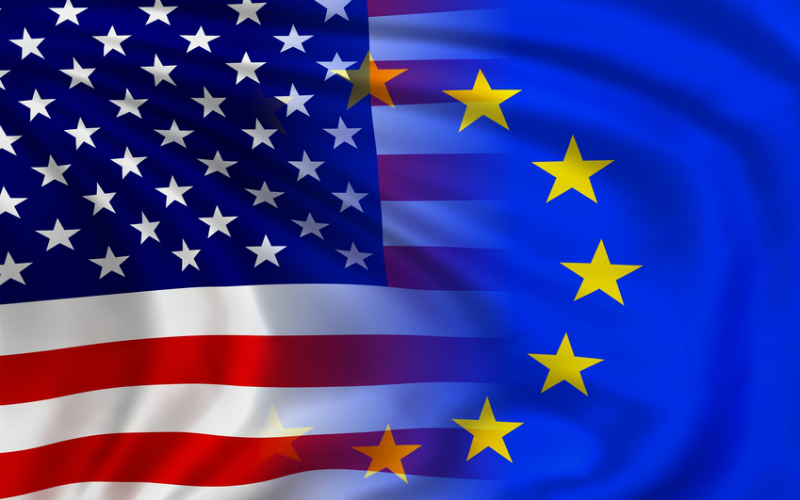In the "Position Paper on China and United Nations Cooperation," the Ministry of Foreign Affairs of the People's Republic of China points out that the Chinese regime has a history of abiding by the "no-first-use" (NFU) principle. However, the Chinese Communist Party's NFU policy for nuclear weapons is offering little more than a false sense of security to some.
For example, the regime's nuclear capability has garnered the attention of U.S. military and government officials. On July 27, Rep. Mike Turner (R-Ohio), ranking member on the House Armed Services Strategic Forces Subcommittee, said: "The nuclear build up underway by the Chinese Communist Party is unprecedented and makes clear they are deploying nuclear weapons to threaten the United States and our allies."
A few weeks later, in a speech at the Space and Missile Defense Symposium in Alabama, Adm. Charles Richard said the U.S. is "witnessing a strategic breakout by China." Richard, the commander of the U.S. Strategic Command, described the Chinese regime's explosive growth and modernization of its nuclear and conventional forces as "breathtaking."
More recently, China's alleged test of a nuclear-capable hypersonic missile also elicited a concerning statement by Robert Wood, the U.S. disarmament ambassador. He admitted that the United States does not have the ability to defend itself against this kind of weaponry.
These concerns beg the question: Can the United States put any degree of trust in the CCP to solely maintain its nuclear armament as a last resort? Historically, nuclear weapons have been used to end a war – not start a war.
Enabled to be aggressive?
Michael O'Hanlon, senior fellow and director of research in foreign policy at the Brookings Institution, tells American Family News he is willing to give the Chinese regime the benefit of the doubt about the use of nuclear weapons. However, he contends that any presumed degree of restraint in the manufacturing of nuclear weapons in China could be short-sighted.

"Up until now, it appears China has shown restraint in nuclear modernization when it could have built more and done more in previous years," he acknowledges. "[But] was there any particular benefit to that kind of virtue, [considering] it was never rewarded or acknowledged for its restraint?"
That restraint, he argues, "did not do them any good in terms of international image or security relations with other countries."
Taiwan: A contentious issue"… [Chinese] President Xi Jinping's future to a certain degree is tied to his promises to resolve the Taiwanese issue – and the only way [that can happen] is by forcing Taiwan to come under the wing of Beijing. At this point, it doesn't look it would be done peacefully." 
"[And] there is some doubt in my mind that [President Joe] Biden would risk so much going to war with China over Taiwan. I think some of the hesitancy we're beginning to see – in Japan, South Korea, the Philippines, Southeast Asia, and so forth – is reflective of that. It's all about confidence in the leadership of the United States … and I think people find Mr. Biden lacking." Bob Maginnis, senior fellow for national security |
So, because the Chinese regime didn't see any benefit to holding back, O'Hanlon suggests that could have contributed to the regime's growth as a formidable nuclear threat while also increasing their aggressiveness toward places like Taiwan, for example.
As the Chinese regime closes in on that tiny East Asian island nation, President Tsai Ing-wen of Taiwan has vowed to "do whatever it takes" to defend her country's independence. Undeterred and unrestrained, the Chinese regime appears to be bent on ramping up its display of nuclear power.
O'Hanlon admits that Taiwan could be vastly outgunned by the Chinese regime's military – especially in light of the explosive growth and modernization of its nuclear arsenal. As Beijing flirts with the prospect of an invasion, the foreign policy expert says it has become more and more apparent that the CCP wants nothing more than to annex – or conquer – Taiwan.
Michael O'Hanlon is author of "The Art of War in an Age of Peace: U.S. Grand Strategy and Resolute Restraint" (2021).
Sidebar added after story was originally published.







